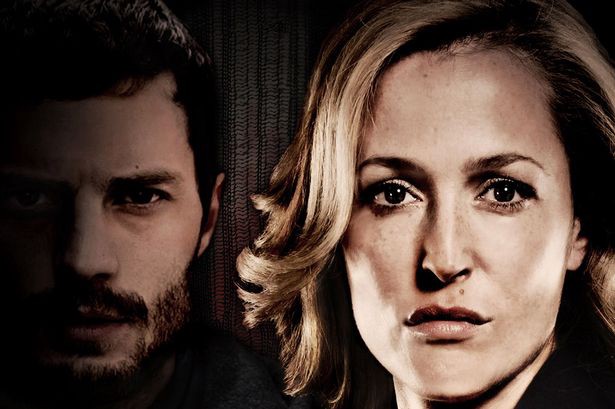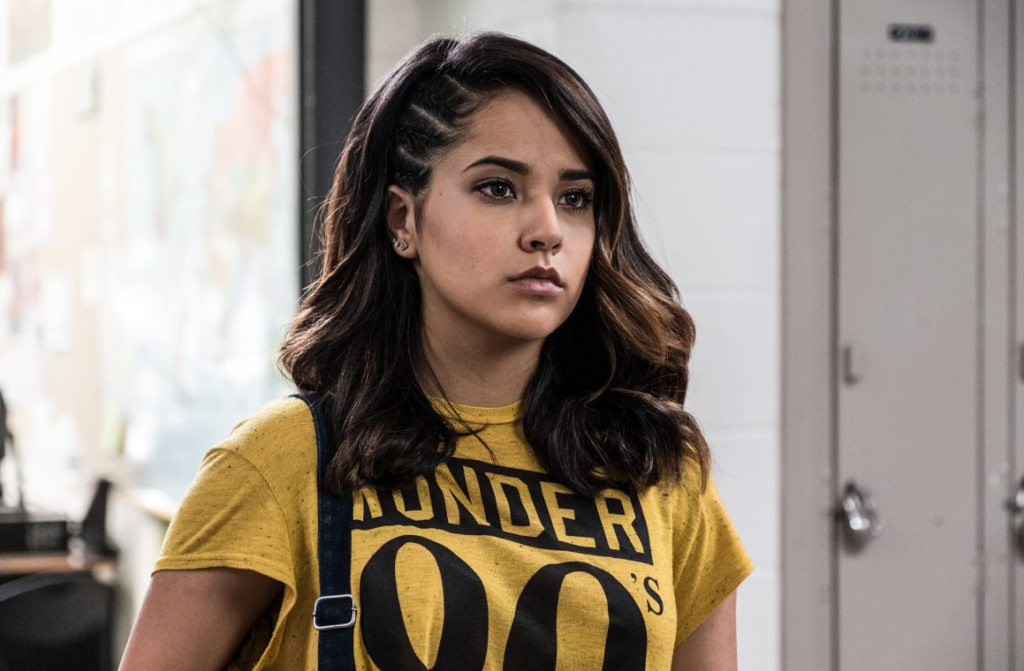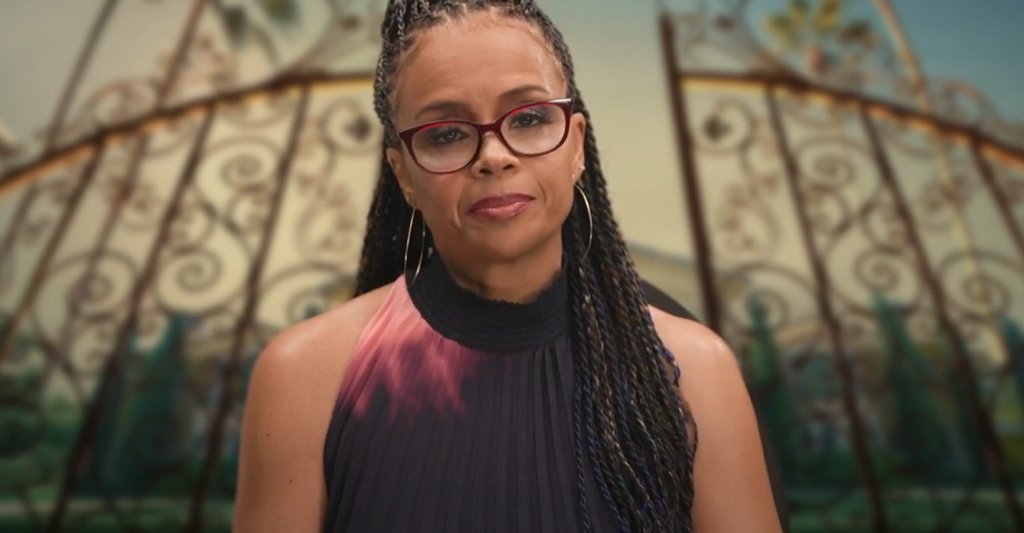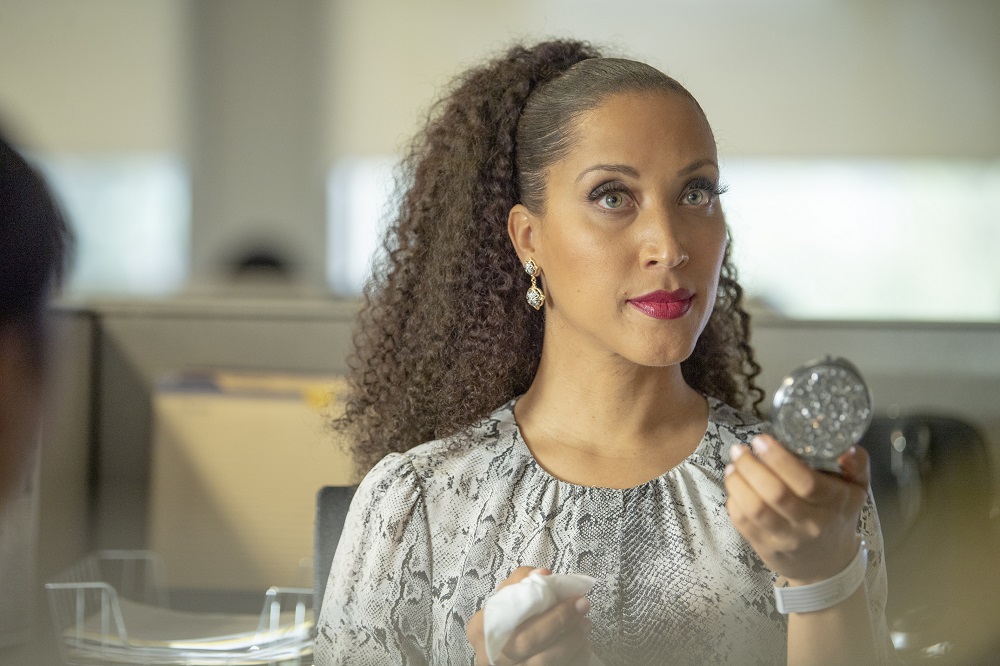The second season of The Fall premieres on Netflix today, and if you haven’t watched this BBC drama yet, now’s a good time to start. (The first season’s only five episodes long, so you’ll be up to date in no time). Based in Northern Ireland, the series follows a serial killer (Jamie Dornan — soon to be everywhere in Fifty Shades of Grey) and the London detective (Gillian Anderson) who’s set on catching him. (Mild spoilers follow for the first season and first episode of the second, though I’ll try not to reveal anything too concrete; it’s not really the type of show that relishes in “gotcha” reveals, anyway.)
The killer’s victims are women, of course, and if your first reaction to that fact is exhaustion, it’s completely understandable. But The Fall is a brilliant rejoinder to our pop-cultural staple of murdered women, placing the focus on the living rather than the dead (or the killing). As Anderson’s Stella Gibson says in “Walk the Line,” the first episode of the second season, “the killer dehumanizes his victims… let’s do the opposite.” Hence, the show — though reliably terrifying — avoids lingering on Paul Spector’s (Dornan) horrifying deeds, and very rarely sexualizes them. In one scene in the first season, the detectives are making a list on a whiteboard of similarities between what the killer did to his various victims, and when they get to the sexual activity area, the camera pans away before you can see what they checked off.
The show’s creator, Allan Cubitt, has strenuously hit back against some claims that the show is misogynist, and I agree; I think you can find more misogyny in your average laundry detergent commercial than in this intelligent, somber drama.
When Gibson finally spoke to Spector on the phone in the first season’s finale, he talked to her about his “freedom” from morality and gave her the old “we’re a lot alike, you and I” spiel. Gibson wasn’t having it. “It’s misogyny,” she told him, sounding almost bored. Same old shit, her tone said, different day.
The show is worth watching for Anderson alone; her character feels like a distant relative of her beloved X-Files detective, a self-possessed loner who seems almost too perplexed by the terrible things people do to one another to get too close to anyone. (There is also a trauma hinted at in her past, which she vaguely references when speaking to a recovering victim. I suspect the show’s intent here is to point to the staggeringly high percentage of women who have been or will be assaulted in their lifetimes.)
Even when embroiled in what the media cooks up into a sex scandal — Gibson’s one night stand with a detective who was murdered shortly thereafter — she stays above the fray, refusing to acknowledge (as she’s repeatedly encouraged to do) that she was wrong to have had no-strings-attached sex with a married man. As she points out, he wasn’t wearing a ring.
In one of my favorite details, she posts photos of women from a distant, matriarchal society on her bulletin board, ostensibly because they were collected by one of the victims, but clearly a vehicle for the writers to work in Gibson’s admiration for the concept. She also just radiates superhuman confidence. In a showdown with a gang of Belfast thugs in “Walk the Line,” she’s surrounded when trying to get into her car. But when she feints toward the lead gangster, he flinches. This may wander into the area of fantasy, but no matter. It’s a truly enjoyable moment in a show that largely deals in sadness and dread.
Dornan’s character is maybe a little less compelling than Anderson’s — in many ways he’s so much like every charming serial killer we’ve seen on TV and in movies — but the show goes to great lengths to give him the really disturbing complexity of being not only a devoted dad, but also an adept grief counselor and, at one point, rescuer of a domestic violence victim. He is also, as has been pointed out often, pretty easy on the eyes. (When a sketch of him is released, one woman says to another, “Could he really look like that?”) The point being, of course, that he could look like anyone; he could have the capacity for kindness, have a family, appear completely normal. The show’s refusal to make him a supervillain is one of its strongest points: Nice, handsome family men also have the capacity for stunning violence and hatred of women. That’s not an entirely popular or easy point to make, and I’m not surprised it’s been misconstrued.
(On a shallower side note, the show has completely brought me on board with the casting of Dornan in the upcoming Fifty Shades of Grey. Even if the movie’s a total disaster, it won’t be his fault; they couldn’t have found an actor more in touch with his creepy side.)
The Fall isn’t perfect; there are aspects of the show that strike me as a little cheesy, and they continue into the second season. In one scene, Paul regards himself in a three-way mirror, and thus his reflection is fragmented: It’s as if there’s more than one version of him! When his daughter calls to say she’s left her Barbie dolls in the family’s vacation house (where his increasingly suspicious wife has asked him to stay behind), you know it won’t be long before he’s doing terrible things to them — those plastic icons of female sexualization and objectification. Spector also receives a letter asking him, as a grief counselor, to meet with one of his own victims — what are the odds? It’s a handy plot device, but also a bit of an eye-roller.
On the whole, though, The Fall continues its reign as a real Trojan horse of a series. Our culture loves a serial killer, whether it’s a Dexter or a Hannibal or a… who was that guy on The Following? Rarely, though, does the viewer show up for the spectacle and end up watching a drama about the banality of evil, the ubiquity of misogyny (a side plot involves the abuse of prostitutes by men on the force), and the focus squarely where it should be: On the humanization, not the artful destruction, of women.







